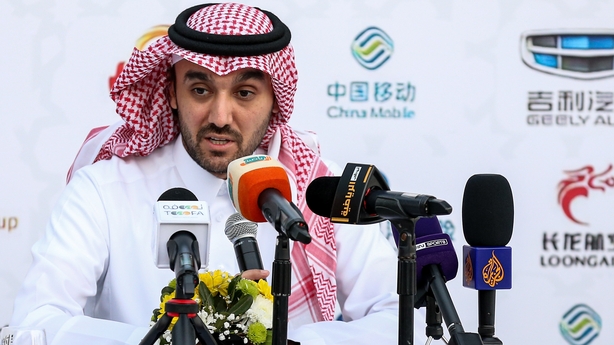The United States and Mexico submitted a joint bid on Friday to co-host the 2027 FIFA Women's World Cup that, if successful, would see the North American neighbours stage global soccer's two showcase events in back-to-back years.
Belgium, Germany and the Netherlands earlier on Friday put in a joint bid to be the 2027 hosts, while Brazil put forward their bid to world soccer governing body FIFA last month.
US Soccer said in a statement that bringing the women's World Cup to North America would capitalise on a moment of extraordinary growth in women's sports to deliver a tournament of unprecedented success.
The United States and Mexico, along with Canada, are set to co-host the 2026 men's World Cup but rather than viewing that as negative U.S. Soccer president Cindy Parlow Cone described it as a huge plus.
"This is a pivotal time for women’s soccer," said Parlow Cone.
"The U.S. and Mexico are in a unique position to host a World Cup that will leverage the same venues, infrastructure, and protocols used for the Men’s World Cup just a year prior.
"This will not only unlock the economic potential of women’s soccer, it will send a message to young players around the world that there is no limit to what they can achieve."
Member associations had until Friday to submit their bids to FIFA. South Africa had also submitted a bid but withdrew last month, saying they felt it was better to present a "well-prepared bid" for the 2031 edition.
"Extensive and detailed consultations between the three federations along with key stakeholders including central governments dates back to 2021," the Dutch football federation (KNVB) said in a statement accompanying the European nations' bid.
"This has led to alignment around the belief that our three countries are well placed to stage a FIFA Women's World Cup 2027 of unparalleled quality and impact."
FIFA will organise on-site inspection visits to bidding countries in February before the hosts are appointed in May by the FIFA Congress.
The 2023 tournament was co-hosted by Australia and New Zealand this year, with Spain beating England in the final.
In other World Cup news, Saudi Arabia's sports minister insists everyone will be welcome at the 2034 men's tournament despite the country's criminalisation of same-sex activity.
The Middle East kingdom is all-but certain to host the finals in 11 years' time after emerging as the sole bidder.
Concerns have been raised at what conditions will be like in Saudi Arabia for individuals from the LGBTQ+ community, but sports minister Prince Abdulaziz bin Turki Al Faisal has told the BBC: "Everyone's welcome in the kingdom.
"Like any other nation we have rules and regulations that everyone should abide by and respect. When we come to the UK we respect the rules and regulations, whether we believe in them or not. Through the 85 events that we have had so far, we haven't had any issues."
The same issue was prevalent before and during the 2022 finals in Qatar. At that tournament, spectators had rainbow-coloured items confiscated by stadium security guards.
Seven countries' captains were also threatened with sporting sanctions starting at a yellow card by FIFA if they wore rainbow-coloured 'OneLove' armbands at the tournament.
That competition was played in winter due to the oppressive summer heat in the Middle East, causing disruption to many leagues in Europe, but Prince Adbulaziz said it was not certain that would need to be repeated in Saudi Arabia.

"Why not see what the possibilities are to do it in the summer?" he added.
"Whether it is summer or winter it doesn't matter for us, as long as we make sure that we (deliver) the right atmosphere to host such an event."
He also said concerns over the treatment of migrant workers involved in building World Cup infrastructure, which dogged Qatar's hosting for more than a decade in the run-up to the finals, would not be repeated.
"We have 10 years to work on that, we already started in a lot of the venues, so we have a long time to do it in the right time, in the right process," he said.
"We're already developing infrastructure... so we are not required to build a lot more to host such an event."
There has been criticism of the process FIFA followed that left Saudi Arabia as the single bidder in the race for 2034.
FIFA announced in October that its Council had agreed the Portugal, Spain and Morocco bid as the sole candidate to host the 2030 finals and that the first three matches of the tournament should be played in South America to mark the event's centenary.
On its continental rotation, that meant only bids from countries in the Asian and Oceania confederations would be considered for 2034.
When Australia announced on 31 October that it would not bid, Saudi Arabia was left as the sole candidate.
The bids for 2030 and 2034 still need to be fully evaluated and then ratified by all member associations at a FIFA Congress

